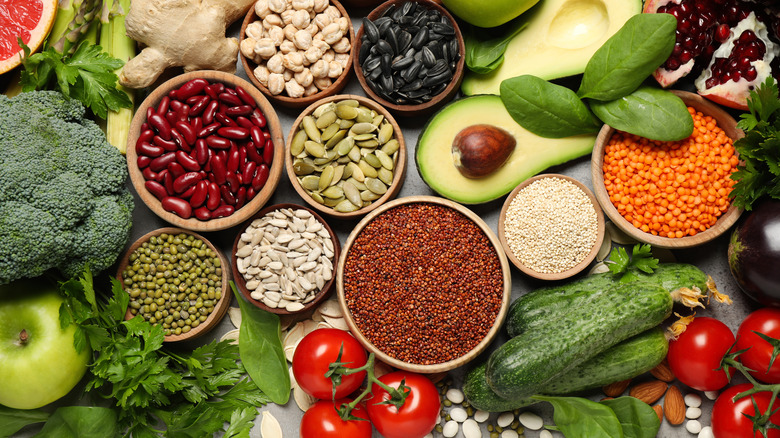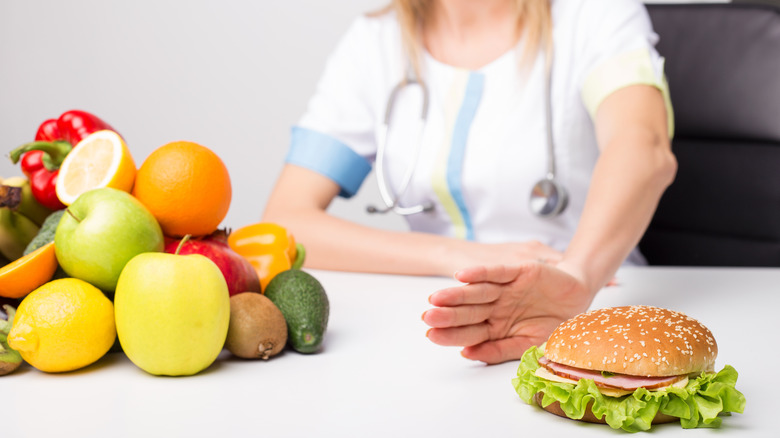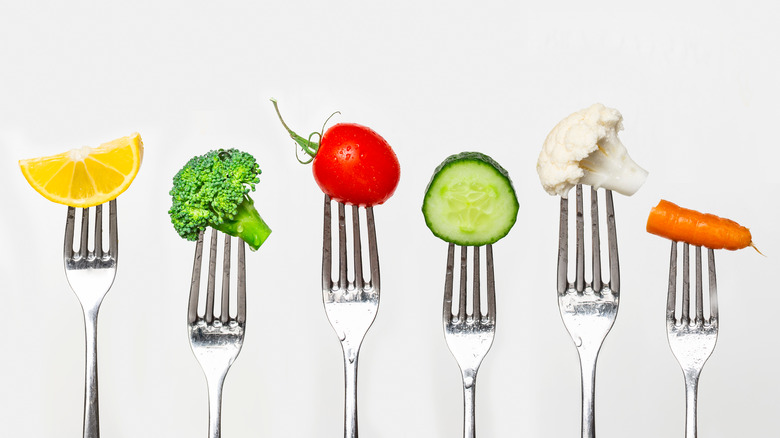The Foods That Will Keep You Feeling Full, According To An RD
Fiber is an important part of a healthy diet. Most of us are probably aware that eating a diet high in fruits, vegetables, and whole grains is important for getting the important vitamins, minerals, and antioxidants our bodies need. But many of these foods are also beneficial for our health because they deliver high amounts of dietary fiber.
Fiber comes in two different kinds, soluble and insoluble, both of which are essential for maintaining good health. Soluble fiber, which dissolves in water, plays an important role in maintaining steady blood cholesterol and glucose levels, while insoluble fiber is important for healthy digestion, explains Medical News Today.
Fiber has been linked to a number of important health benefits, including lowering cholesterol and reducing the risk of illnesses such as heart disease, high blood pressure, type two diabetes, and colorectal cancer. It has also been shown to help people maintain a healthy weight and even extend their lifespan, according to the Mayo Clinic. And that's not all fiber can do. It can also a significant role in immune health. Fiber can help improve digestive health and lower inflammation, both of which can contribute to lower risks of problems including high cholesterol, constipation, and even hemorrhoids, according to Today's Dietitian.
Foods with a high dietary fiber content contribute to feelings of satiety
One of the most important roles dietary fiber plays in our diets is contributing to a feeling of satiety. While foods that are high in sugar and empty carbs might contain a lot of calories, they often don't contain much fiber. This makes it easy to overeat and consume more calories than the body needs. On the other hand, foods that are high in fiber can help people feel full and satisfied for longer periods of time.
According to Brookell White, MS, RDN, a registered dietitian and Nutrition Consultant for MyFitnessPal, foods that are high in fiber, are the keys to staying fuller longer. "Micronutrients are vitamins and minerals and do not provide the body with energy, therefore they cannot contribute to satiating our bodies," White explains to Mashed, adding that "fruits and vegetables with a higher fiber content contribute more to making us feel full." (Still, it's possible to eat too much fiber — the FDA recommends that adults eat around 28 grams per day.)
However, not all fruits and vegetables are created equal when it comes to dietary fiber content. Some fruits and vegetables, such as melons, peaches, nectarines, lettuce, and cucumbers, may contain vitamins and minerals, but not a lot of roughage, making them poor sources of fiber, according to Healthline.
Eating high-fiber foods can help with weight maintenance
As Brookell White, MS, RDN, a registered dietitian and Nutrition Consultant for MyFitnessPal, explains to Mashed, "Fiber in foods helps to slow movement of food through your digestive tract. Therefore, nutrients will be absorbed at a slower rate and some may not be absorbed at all."
White adds that fiber creates "viscosity or bulk in our intestines, contributing to satiety." This feeling of satiety is an important physiologic effect that can help people go longer between mealtimes without feeling hungry and has been shown to help contribute to weight maintenance, according to a study published in Nutrition Reviews.
White recommends eating foods such as "berries, pears, apples, avocados, Brussels sprouts, edamame, broccoli, and cauliflower," all of which contain high levels of fiber, as well as healthy vitamins and antioxidants. However, White cautions against ranking some foods as "better" or "worse" than others based solely on their dietary fiber content alone. "Just because a fruit or vegetable is high in fiber does not make it 'better' or 'worse' than another. All fruits and vegetables contain a unique nutrient profile and therefore are beneficial in different ways," she explains.


